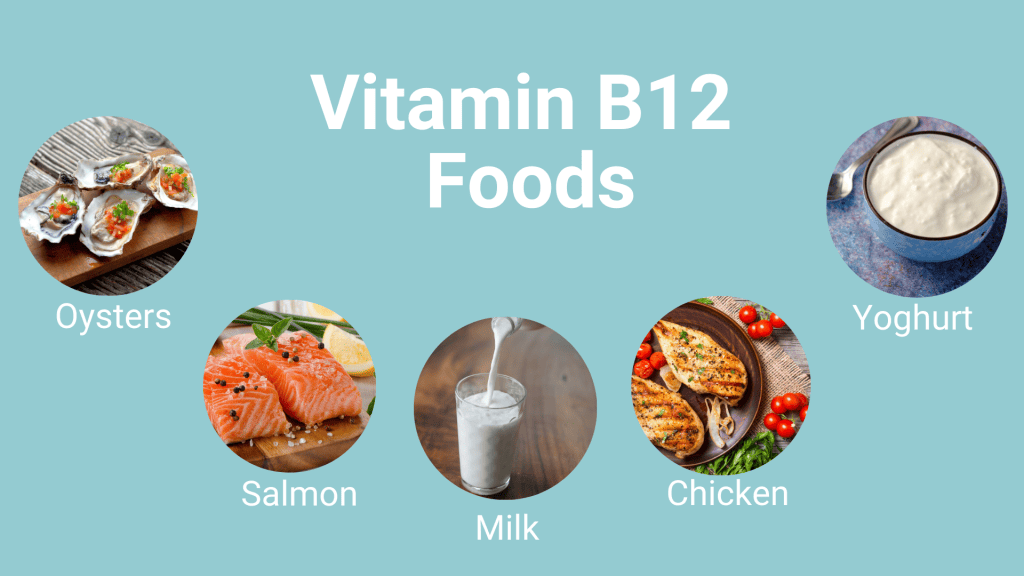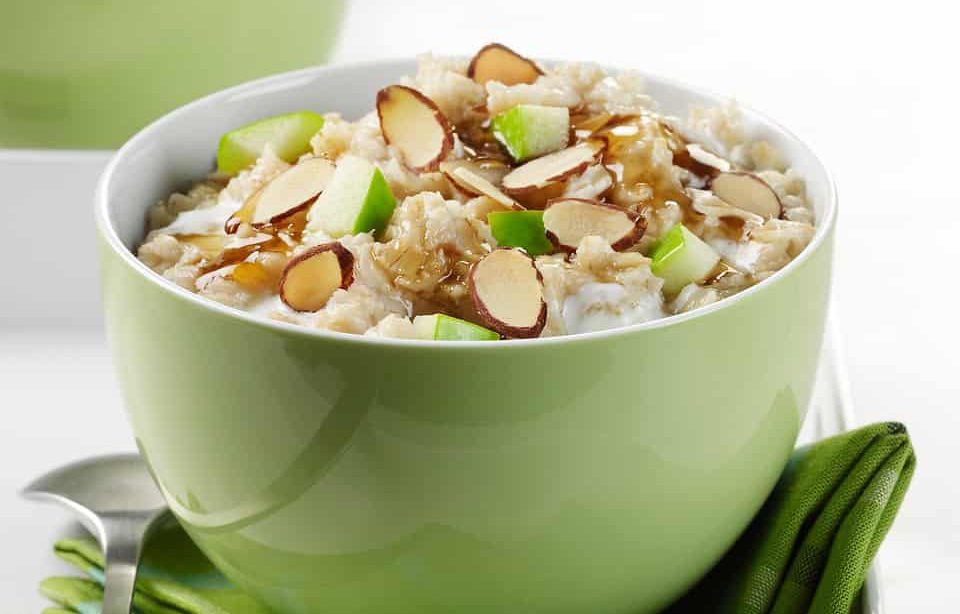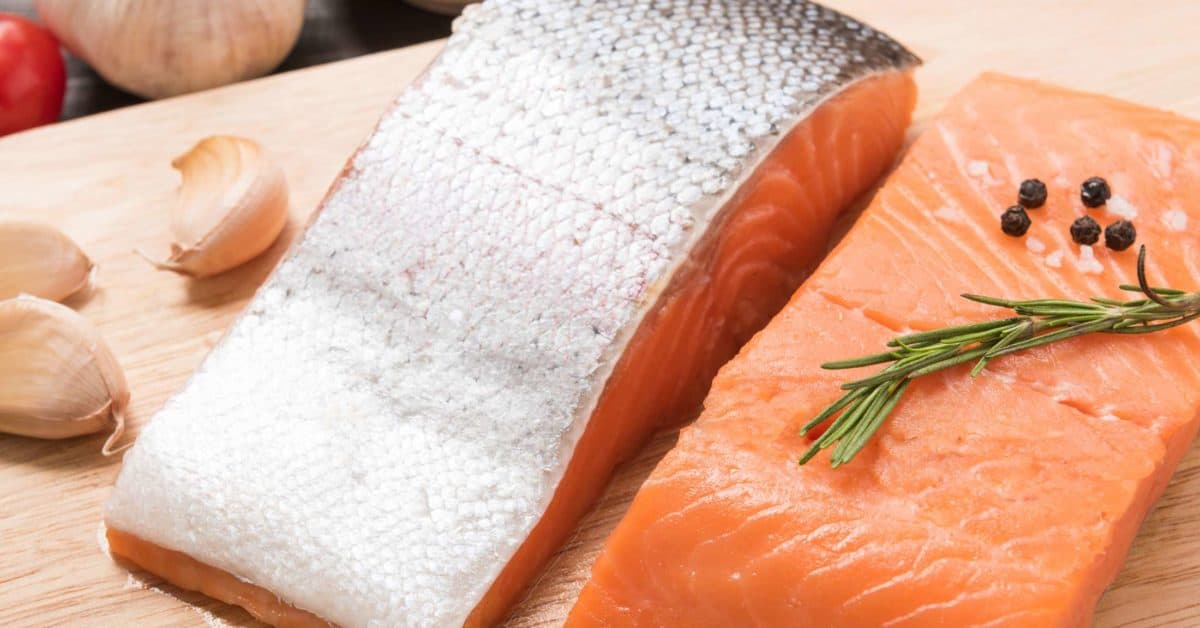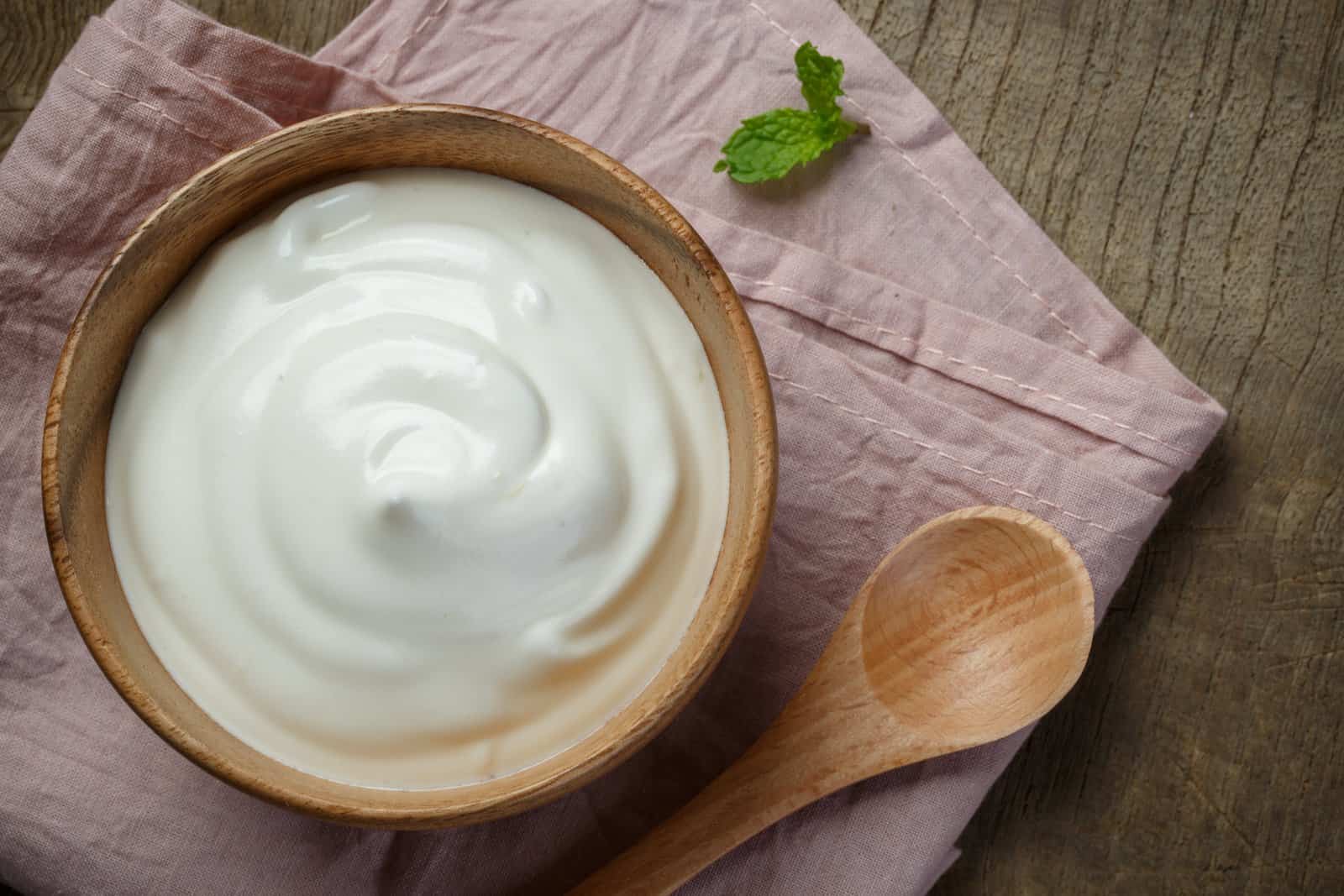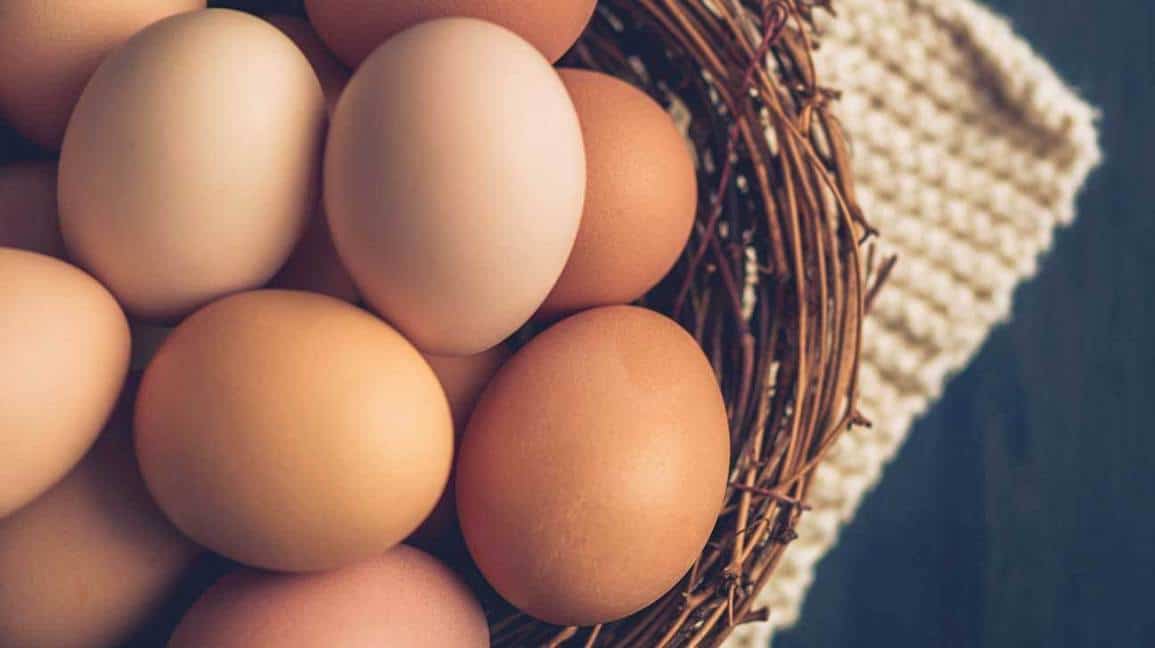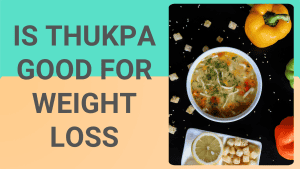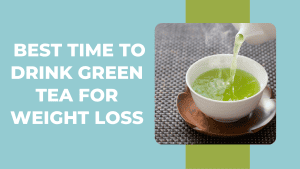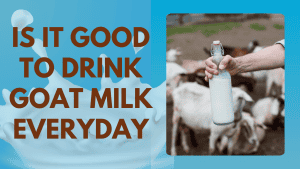Vitamin B12 is an essential vitamin that helps with some of the important functions of the body such as making DNA as well as keeping the blood and nerve cells healthy. Vitamin B12 also substantially helps in keeping the condition of megaloblastic anemia at bay. This is one crucial vitamin that our body can’t generate on its own thus its requirements are fulfilled through supplements and other food items. Animal meat, fish, eggs and dairy are primarily the food items that contain Vitamin B12. Fortified cereals, Fortified nutritional yeast, tuna, almonds, Fortified nondairy milk are some of the best examples of food rich in Vitamin B12. A deficiency of Vitamin B12 in the body can give way to various problems such as pale skin, heart palpitations, loss of appetite, weight loss, and infertility. In order to obtain your daily requirements of vitamin B12, make sure to consume vitamin b12 rich foods. Read on to better understand what are vitamin b12 foods, what are the advantages of consuming Vitamin b12 foods and what all food items can be a part of your vitamin b12 foods list.
What are Vitamin B12 Rich Foods?
Vitamin B12, also known as cobalamin, is a water-soluble vitamin that plays an important role in various bodily processes. It is essential for the formation of red blood cells, the proper functioning of the nervous system, and the production of DNA. B12 is unique among the B vitamins since it is not found in plant foods, but rather, foods high in vitamin b12 can be found in animal products such as meat, fish, eggs, and dairy. Therefore, vegans and vegetarians are at a higher risk of developing a B12 deficiency and may need to supplement their diets with vitamin B12 foods or consume fortified foods to meet their needs. Eating a variety of vitamin B12 rich foods is important to ensure you’re getting all the nutrients you need. Many plant-based protein powders are fortified with vitamin B12, making them a good option for vegan athletes looking for vitamin B12 rich foods.
Vegetables like spinach and kale are also vitamin B12 rich foods, but they should be eaten in large quantities to get enough of the vitamin. The body can store vitamin B12 from vitamin B12 foods in the liver for several years, which is why deficiency is rare but can occur in individuals who have trouble absorbing the vitamin or have a diet lacking in B12. Some symptoms of a B12 deficiency include fatigue, weakness, pale skin, constipation, numbness or tingling in the hands and feet, and difficulty maintaining balance. Thus it’s necessary to include foods high in vitamin B12. Vitamin B12 foods are also important for DNA synthesis and cell division. Nutritional supplements can also provide vitamin B12, but it’s always better to get it from vitamin B12 rich foods if possible. Make sure to also intake Vitamin D Foods for better developement of the body.
15 Best Vitamin B12 Foods
Meat, fish, eggs and dairy are primarily the food items that are rich in Vitamin b12. Some of these include, tuna, ham, oysters, fortified cereals and others. They depart various health benefits such as improving brain and bone health, boosts energy and heart health. Here are 12 vitamin b12 foods list, along with their nutritional content, some facts about their nutritional value, and how to include them in your diet:
- Fortified cereal Rich in Vitamin B12
- Fish, like haddock and tuna Rich in Vitamin B12
- Fortified nutritional yeast Rich in Vitamin B12
- Trout Rich in Vitamin B12
- Salmon Rich in Vitamin B12
- Fortified nondairy milk Rich in Vitamin B12
- Milk and dairy products Rich in Vitamin B12
- Clams Rich in Vitamin B12
- Breakfast Cereals (Fortified) Rich in Vitamin B12
- Yoghurt Rich in Vitamin B12
- Ham Rich in Vitamin B12
- Eggs Rich in Vitamin B12
- Oysters Rich in Vitamin B12
- Chicken Rich in Vitamin B12
- Turkey Rich in Vitamin B12
1. Fortified cereal Rich in Vitamin B12
Fortified cereals are one of the popular in the vitamin b12 foods list that are enriched with various vitamins and minerals, including vitamin B12. Vitamin B12 is important for the proper functioning of the nervous system, the production of red blood cells, and the maintenance of DNA. It is a rich source of vitamin b12.
Health Benefits:
- Promotes brain health: Vitamin B12 plays a key role in the proper functioning of the nervous system, which includes the brain. It helps in maintaining the health of nerve cells and improves cognitive function.
- Boosts energy: Vitamin B12 helps in the production of red blood cells, which carry oxygen to various parts of the body. This, in turn, helps in boosting energy levels and prevent fatigue.
- Supports bone health: Vitamin B12 helps in the absorption of calcium, which is important for maintaining strong bones and preventing osteoporosis.
Nutritional Value:
Fortified cereals contain varying amounts of vitamin B12, depending on the brand and serving size. On average, a serving of fortified cereal (about 30 grams) provides approximately 1.5-2.4 micrograms (25-40% DV) of vitamin B12. In addition to vitamin B12, fortified cereals are also a good source of fiber, iron, and other vitamins and minerals.
| Serving Size | Quantity per 1 cup (28g) |
| Calories | 105 |
| Fat | 1.9g |
| Carbohydrates | 21g |
| Protein | 3.4g |
| Iron | 9.3 mg |
How to include it in your diet:
Fortified cereals are easy to include in your diet as a breakfast food. You can enjoy them with milk or yogurt, or add them as a topping to oatmeal or smoothie bowls. When choosing a fortified cereal, look for one that is low in added sugars and high in fiber. Additionally, be sure to read the nutrition label to ensure that it provides an adequate amount of vitamin B12.
2. Fish, such as haddock and tuna Rich in Vitamin B12
Fish, such as haddock and tuna, are a very popular source of vitamin b12 food. Here are some health benefits and nutritional values of these fish:
Health Benefits:
- Supports brain health: Vitamin B12 is important for the proper functioning of the nervous system, including the brain. Adequate intake of vitamin B12 has been shown to improve cognitive function and reduce the risk of age-related cognitive decline.
- Promotes heart health: Omega-3 fatty acids, which are found in fish, have been shown to reduce inflammation and improve heart health. Eating fish regularly has been associated with a reduced risk of heart disease.
- Boosts energy: Vitamin B12 helps in the production of red blood cells, which carry oxygen to various parts of the body. This, in turn, helps in boosting energy levels and prevent fatigue. Vitamin E Foods are also efficient at escalating energy levels in the body.
Nutritional Value:
Haddock and tuna are both excellent sources of vitamin B12. A 3-ounce serving of cooked haddock contains approximately 1.2 micrograms (20% DV) of vitamin B12, while a 3-ounce serving of canned tuna provides approximately 2.5 micrograms (42% DV) of vitamin B12. In addition to vitamin B12, these fish are also high in protein, omega-3 fatty acids, and other vitamins and minerals.
| HADDOCK RAW | |
| Serving Size | Quantity per 85g |
| Calories | 63 |
| Fat | 0.4g |
| Carbohydrates | 0g |
| Protein | 14g |
| Iron | 0.1mg |
| RAW TUNA | |
| Serving Size | Quantity per 28g |
| Calories | 31 |
| Fat | 0.1g |
| Carbohydrates | 0g |
| Protein | 6.9g |
| Iron | 0.2mg |
How to include it in your diet:
Haddock and tuna can be included in your diet in a variety of ways. You can bake, grill, or pan-fry them and serve them as a main dish with vegetables and whole grains. You can also add canned tuna to salads, sandwiches, or pasta dishes for a quick and easy meal. When choosing fish, it’s important to choose varieties that are sustainably sourced and low in mercury.
3. Fortified nutritional yeast Rich in Vitamin B12
Fortified nutritional yeast is a popular ingredient used in vegan and vegetarian diets as a rich source of vitamin b12. Nutritional yeast is a popular vegan source of vitamin B12 food, and it can be sprinkled on top of salads, soups, or pasta dishes.
Health Benefits:
- Supports the immune system: Vitamin b12 foods are important for the proper functioning of the immune system. Adequate intake of vitamin B12 has been shown to improve immune function and reduce the risk of infections.
- Promotes nerve health: Vitamin b12 foods play a key role in the proper functioning of the nervous system. It helps in the maintenance of nerve cells and improves cognitive function.
- Boosts energy: Vitamin B12 helps in the production of red blood cells, which carry oxygen to various parts of the body. This, in turn, helps in boosting energy levels and prevent fatigue.
Nutritional Value:
Fortified nutritional yeast is an excellent source of vitamin B12. A tablespoon of fortified nutritional yeast provides approximately 4 micrograms (67% DV) of vitamin B12. In addition to vitamin B12, nutritional yeast is also high in protein, fiber, and other vitamins and minerals.
| NUTRITIONAL YEAST | |
| Serving Size | Quantity per 1 tbsp (8.5g) |
| Calories | 28 |
| Fat | 0.6g |
| Carbohydrates | 3.2g |
| Protein | 3.8g |
| Iron | 0.2mg |
How to include it in your diet:
Fortified nutritional yeast can be used as a seasoning or topping on various dishes. It has a nutty, cheesy flavor and can be added to soups, stews, salads, and popcorn for an added nutritional boost. It can also be used to make vegan cheese sauces or sprinkled on top of roasted vegetables. When choosing nutritional yeast, be sure to look for one that is fortified with vitamin B12 and other nutrients.
4. Trout Rich in Vitamin B12
Trout is a type of freshwater fish that is a rich source of vitamin b12.
Health Benefits:
- Supports heart health: Trout is a good source of omega-3 fatty acids, which have been shown to improve heart health. Eating trout regularly has been associated with a reduced risk of heart disease.
- Boosts brain function: Vitamin B12 is important for the proper functioning of the nervous system, including the brain. Adequate intake of vitamin B12 has been shown to improve cognitive function and reduce the risk of age-related cognitive decline.
- Helps in red blood cell formation: Vitamin B12 plays a key role in the formation of red blood cells, which carry oxygen to various parts of the body. This, in turn, helps in boosting energy levels and prevent fatigue.
Nutritional Value:
Trout is an excellent choice of vitamin B12 foods. A 3-ounce serving of cooked trout provides approximately 3.5 micrograms (58% DV) of vitamin B12. In addition to vitamin B12, trout is also high in protein, omega-3 fatty acids, and other vitamins and minerals.
| TROUT | |
| Serving Size | Quantity per 1 fillet (62g) |
| Calories | 118 |
| Fat | 5.3g |
| Carbohydrates | 0g |
| Protein | 17g |
| Iron | 1.2mg |
How to include it in your diet:
Trout can be included in your diet in a variety of ways. You can bake, grill, or pan-fry it and serve it as a main dish with vegetables and whole grains. You can also add cooked trout to salads or sandwiches for a protein-rich meal. When choosing trout, it’s important to choose varieties that are sustainably sourced and low in mercury.
5. Salmon Rich in Vitamin B12
Salmon is a type of fatty fish that is known for its high levels of omega-3 fatty acids and comes in the category of vitamin b12 foods. It is a rich source of vitamin b12.
Health Benefits:
- Promotes heart health: Salmon is rich in omega-3 fatty acids, which have been shown to reduce inflammation and improve heart health. Regular consumption of salmon has been linked to a reduced risk of heart disease.
- Supports brain function: Vitamin B12 is essential for the proper functioning of the nervous system, including the brain. Adequate intake of vitamin B12 has been shown to improve cognitive function and reduce the risk of age-related cognitive decline.
- Boosts immunity: Vitamin B12 plays an important role in the production of white blood cells, which are essential for a healthy immune system. Adequate intake of vitamin B12 has been shown to improve immune function and reduce the risk of infections.
Nutritional Value:
Salmon is an excellent source of vitamin B12. A 3-ounce serving of cooked salmon provides approximately 4.8 micrograms (80% DV) of vitamin B12. In addition to vitamin B12, salmon is also high in protein, omega-3 fatty acids, and other vitamins and minerals.
| SALMON | |
| Serving Size | Quantity per 1 fillet (227g) |
| Calories | 468 |
| Fat | 28g |
| Carbohydrates | 0g |
| Protein | 50g |
| Iron | 0.8mg |
How to include it in your diet:
Salmon can be included in your diet in a variety of ways. You can bake, grill, or pan-fry it and serve it as a main dish with vegetables and whole grains. You can also add cooked salmon to salads or sandwiches for a protein-rich meal. When choosing salmon, it’s important to choose wild-caught varieties that are sustainably sourced and low in mercury. You can also prepare recipes like Masala Fish with Salmon.
6. Fortified non-dairy milk Rich in Vitamin B12
Fortified nondairy milk, such as soy milk, almond milk, and oat milk, is a rich source of vitamin b12 for individuals who follow a vegan or vegetarian diet.
Health Benefits:
- Supports bone health: Many fortified nondairy milks are also fortified with calcium, which is important for strong bones and teeth.
- Boosts energy: Vitamin B12 is essential for the production of red blood cells, which carry oxygen to the body’s tissues. Adequate intake of vitamin B12 has been shown to improve energy levels and reduce fatigue.
- Supports nerve function: Vitamin B12 is important for the proper functioning of the nervous system, including the brain. Adequate intake of vitamin B12 has been shown to improve cognitive function and reduce the risk of age-related cognitive decline.
Nutritional Value:
Fortified non-dairy milk is an excellent source of vitamin B12. One cup of fortified soy milk can provide up to 3 micrograms (50% DV) of vitamin B12, while one cup of fortified almond milk can provide up to 1.5 micrograms (25% DV) of vitamin B12. In addition to vitamin B12, fortified nondairy milk is also a good source of calcium, vitamin D, and other vitamins and minerals.
| SOY MILK | |
| Serving Size | Quantity per 1 cup (243g) |
| Calories | 100 |
| Fat | 4g |
| Carbohydrates | 8g |
| Protein | 7g |
| Iron | 1.1mg |
How to include it in your diet:
Fortified non-dairy milk can be used in a variety of ways. You can use it as a replacement for cow’s milk in recipes, such as smoothies, soups, and baked goods. You can also enjoy this rich source of vitamin b12 on its own or use it as a base for hot beverages, such as tea or coffee. When choosing fortified nondairy milk, it’s important to choose unsweetened varieties to minimize added sugars.
7. Milk and dairy products Rich in Vitamin B12
Milk and dairy products are also included in Vitamin B12 rich foods. Here are some health benefits and nutritional values of milk and dairy products:
Health Benefits:
- Promotes bone health: Milk and dairy products are rich in calcium, which is important for building and maintaining strong bones and teeth.
- Supports muscle growth: Dairy products are also rich in protein, which is essential for muscle growth and repair.
- Boosts immunity: Vitamin B12 plays an important role in the production of white blood cells, which are essential for a healthy immune system. Adequate intake of vitamin B12 has been shown to improve immune function and reduce the risk of infections.
Nutritional Value:
Milk and dairy products are good sources of vitamin B12. One cup of milk can provide approximately 1.2 micrograms (20% DV) of vitamin B12, while one cup of yogurt can provide approximately 1.4 micrograms (23% DV) of vitamin B12. In addition to vitamin B12, milk and dairy products are also high in calcium, protein, and other vitamins and minerals.
| MILK | |
| Serving Size | Quantity per 1 cup (244g) |
| Calories | 122 |
| Fat | 4.8g |
| Carbohydrates | 12g |
| Protein | 8.1g |
| Iron | 0.1mg |
How to include it in your diet:
Milk and dairy products can be included in your diet in a variety of ways. You can drink milk on its own or use it as a base for hot beverages, such as tea or coffee. You can also use milk as a replacement for water in recipes, such as oatmeal or smoothies. Dairy products, such as cheese and yogurt, can be used as a topping for salads or added to sandwiches for a protein-rich meal. To make it more nutrient-packed, you can add nuts as well. Read more about the health benefits of nuts. When choosing dairy products, it’s important to choose low-fat or fat-free varieties to minimize saturated fat intake.
8. Clams Rich in Vitamin B12 Rich in Vitamin B12
Clams are a rich source of vitamin b12, which is important for a variety of bodily functions. Here are some health benefits and nutritional values of clams:
Health Benefits:
- Supports nerve function: Vitamin B12 plays a crucial role in the proper functioning of the nervous system, including the brain. Adequate intake of vitamin B12 has been shown to improve cognitive function and reduce the risk of age-related cognitive decline.
- Promotes healthy metabolism: Vitamin B12 is essential for the proper metabolism of fats, proteins, and carbohydrates. Adequate intake of vitamin B12 has been shown to improve energy levels and reduce fatigue.
- Boosts immunity: Vitamin B12 is important for the production of white blood cells, which are essential for a healthy immune system. Adequate intake of vitamin B12 has been shown to improve immune function and reduce the risk of infections.
Nutritional Value:
Clams are one of the best sources of vitamin B12 food. Just 3 ounces of cooked clams can provide over 84 micrograms (1,400% DV) of vitamin B12. In addition to vitamin B12, clams are also high in protein, iron, and other vitamins and minerals.
| CLAMS | |
| Serving Size | Quantity per 1 oz (28.3g) |
| Calories | 42 |
| Fat | 0.6g |
| Carbohydrates | 1.5g |
| Protein | 7.3g |
| Iron | 0.8mg |
How to include it in your diet:
Clams can be incorporated into your diet in a variety of ways. They can be added to soups, stews, and pasta dishes for a boost of flavor and nutrition. You can also enjoy them as a main dish, such as in clam chowder or on the half shell. When cooking clams, it’s important to ensure that they are properly cleaned and cooked to reduce the risk of foodborne illness.
9. Breakfast Cereals (Fortified) Rich in Vitamin B12
Fortified breakfast cereals are a popular and rich source of vitamin b12 and are a convenient way to incorporate this important nutrient into your diet. You can also try Vitamin A Foods to fulfill your overall vitamin enrichment.
Here are some health benefits and nutritional values of fortified breakfast cereals:
Health Benefits:
- Supports nerve function: Vitamin B12 plays a crucial role in the proper functioning of the nervous system, including the brain. Adequate intake of vitamin B12 has been shown to improve cognitive function and reduce the risk of age-related cognitive decline.
- Promotes healthy metabolism: Vitamin B12 is essential for the proper metabolism of fats, proteins, and carbohydrates. Adequate intake of vitamin B12 has been shown to improve energy levels and reduce fatigue.
- Boosts immunity: Vitamin B12 is important for the production of white blood cells, which are essential for a healthy immune system. Adequate intake of vitamin B12 has been shown to improve immune function and reduce the risk of infections.
Nutritional Value:
Fortified breakfast cereals are a good source of vitamin B12. A serving of fortified breakfast cereal can provide anywhere from 25% to 100% of the daily value of vitamin B12. In addition to vitamin B12, fortified breakfast cereals are also high in fiber, iron, and other vitamins and minerals.
| FORTIFIED CEREALS | |
| Serving size | 100g |
| Calories | 429 |
| Protein | 27g |
| Fats | 11g |
| Carbs | 54g |
| Iron | 8mg |
How to include it in your diet:
Fortified breakfast cereals are easy to incorporate into your diet. They can be enjoyed with milk or yogurt for a quick and nutritious breakfast. You can also use them as a topping for smoothie bowls or add them to homemade trail mix for a convenient snack. When choosing a fortified breakfast cereal, it’s important to check the nutrition label and choose a cereal that is low in sugar and high in fiber to maximize its health benefits.
10. Yoghurt Rich in Vitamin B12
Yogurt is a nutritious and versatile food that is rich in a variety of vitamins and minerals, including vitamin B12. Here are some health benefits of yogurt and nutritional values of yogurt:
Health Benefits:
- Supports digestion: Yogurt is rich in probiotics, which are beneficial bacteria that promote healthy digestion and gut health. Regular consumption of yogurt has been shown to improve digestive health and reduce the risk of digestive disorders.
- Boosts immunity: Yogurt contains probiotics and other immune-boosting nutrients, such as vitamin B12, that can help support a healthy immune system and reduce the risk of infections.
- Helps maintain strong bones: Yogurt is a good source of calcium and vitamin D, both of which are important for maintaining strong bones and reducing the risk of osteoporosis.
Nutritional Value:
Yogurt is a good source of vitamin B12 food, with one cup of plain yogurt providing about 1.4 micrograms (23% DV) of vitamin B12. In addition to vitamin B12, yogurt is also high in protein, calcium, and other vitamins and minerals.
| YOGURT | |
| Serving Size | Quantity per 1 container (170g) |
| Calories | 107 |
| Fat | 2.6g |
| Carbohydrates | 12g |
| Protein | 8.9g |
| Iron | 0.1mg |
How to include it in your diet:
Yogurt can be enjoyed in a variety of ways, making it easy to incorporate into your diet. You can enjoy it plain or add it to smoothies, parfaits, or fruit bowls for a nutritious snack or breakfast. Yogurt can also be used as a healthier substitute for sour cream or mayonnaise in recipes, or as a marinade for meats. When choosing yogurt, it’s important to choose plain, unsweetened yogurt to avoid added sugars and artificial flavors.
11. Ham Rich in Vitamin B12 Rich in Vitamin B12
Ham is a popular meat that is rich in protein, B vitamins, and minerals, including vitamin B12. Here are some health benefits and nutritional values of ham:
Health Benefits:
- Promotes muscle growth and repair: Ham is rich in protein, which is essential for muscle growth and repair. Protein also helps keep you feeling full and satisfied, which can aid in weight management.
- Supports nerve function: Vitamin B12, which is found in ham, is important for the proper functioning of the nervous system, including the brain. Adequate intake of vitamin B12 has been shown to improve cognitive function and reduce the risk of age-related cognitive decline.
- Helps maintain healthy blood cells: Vitamin B12 is important for the production of red blood cells, which carry oxygen throughout the body. Adequate intake of vitamin B12 can help prevent anemia and promote healthy blood cell function.
Nutritional Value:
Ham is a good source of vitamin B12, with a 3-ounce serving providing about 1.2 micrograms (20% DV) of vitamin B12. In addition to vitamin B12, ham is also high in protein, iron, and other B vitamins.
| HAM | |
| Serving Size | Quantity per 1 cup, diced (134g) |
| Calories | 186 |
| Fat | 6.8g |
| Carbohydrates | 1.4g |
| Protein | 30g |
| Iron | 1.1mg |
How to include it in your diet:
Ham can be enjoyed in a variety of ways, making it easy to incorporate into your diet. It can be added to sandwiches, omelets, and salads, or used as a topping for pizzas or baked potatoes. When choosing ham, it’s important to choose lean cuts to minimize the intake of saturated fats and sodium, which can increase the risk of heart disease and high blood pressure.
12. Eggs Rich in Vitamin B12
Eggs are a nutrient-dense food that is rich in vitamins and minerals, including vitamin B12. Here are some health benefits and nutritional values of eggs:
Health Benefits:
- Supports brain health: Eggs are rich in choline, a nutrient that is important for brain health and development. Adequate intake of choline has been associated with improved cognitive function and reduced risk of cognitive decline.
- Promotes muscle growth and repair: Eggs are a good source of protein, which is essential for muscle growth and repair. Protein also helps keep you feeling full and satisfied, which can aid in weight management.
- Helps maintain healthy vision: Eggs are rich in lutein and zeaxanthin, two antioxidants that are important for maintaining healthy vision and reducing the risk of age-related macular degeneration.
Nutritional Value:
Eggs are a good source of vitamin B12, with one large egg providing about 0.6 micrograms (10% DV) of vitamin B12. In addition to vitamin B12, eggs are also high in protein, healthy fats, and other vitamins and minerals.
| EGG | |
| Serving Size | Quantity per 1 Large Egg (50g) |
| Calories | 72 |
| Fat | 4.8g |
| Carbohydrates | 0.4g |
| Protein | 6.3g |
| Iron | 0.9mg |
How to include it in your diet:
Eggs can be enjoyed in a variety of ways, making them easy to incorporate into your diet. They can be boiled, scrambled, poached, or used in omelets or frittatas. Eggs can also be used as a binding agent in recipes, such as meatballs or veggie burgers. When choosing eggs, it’s important to choose free-range or pasture-raised eggs, which are higher in omega-3 fatty acids and other nutrients compared to conventionally-raised eggs.
13. Oysters Rich in Vitamin B12
Oysters are seafood with a slimy and salty blob-like texture and are praised for their chewy and fresh flavour. These oceanic delights are one of the best sources of Vitamin B12 along with other important minerals such as Iron, Magnesium, Phosphorus, Zinc, Copper, Manganese and Selenium.
Health Benefits:
- Improves brain health: There is an impressive amount of Vitamin B12 present in oysters which makes them an impressive choice to support health function of brain. Deficiency of Vitamin B12 has been linked to dementia, including Alzheimer’s disease as well as mental health issues such as depression.
- Prevents Osteoporosis: Oysters vastly helps in slowing down bone loss and may even keep at bay any related issues such as osteoporosis in women. These foods are famously rich in vitamin D, copper, zinc, and manganese and when added with calcium, it can further help in maintaining bone health.
- Prevents Selenium Deficiency: Deficiency of selenium can often give rise to cardiovascular disease, infertility, and cognitive decline. Oysters are one of the best sources of selenium which when consumed in smaller quantities can help the body properly perform various functions.
Nutritional Value:
Oysters are a great source of Vitamin B12, with three ounces of cooked oysters providing 21.84 mcg (364% DV) of Vitamin B12. Below given is the nutritional value of oysters.
|
OYSTERS |
|
| Serving Size | 6 Medium sized Oysters |
| Calories | 50 |
| Fat | 1g |
| Carbohydrates | 5g |
| Protein | 6g |
How to include it in your diet:
Oysters can be included into your diet in the form of delightful appetizers or seafood stew. It can also be grilled, fried or stirred into the soup or can be added into lettuce wraps.
14. Chicken Rich in Vitamin B12
Chicken is one of the healthiest sources of Vitamin B12 obtained from animal based foods. This excellent source of lean protein can help fulfill your Vitamin B12 requirements along with providing additional health advantages to the body.
Health Benefits:
- Strengthens bones and muscles: Chicken is also an excellent source of amino acid which helps in building muscle tissues. Consumption of high protein also helps considerably in maintaining bone mineral density which keeps bone related issues such as osteoporosis at bay. Vitamin C Foods are also incredibly helpful with maintaining bone health.
- Elevates mood: Chicken contains tryptophan, an amino acid that is known to boost serotonin levels in the body. Although the content of this particular amino acid is limited in chicken, it can still help elevate one’s mood when coupled with other foods.
- Improves heart health: Chicken is also phenomenally rich in protein and consuming protein rich foods gives the feeling of fullness, further assisting in weight management. Healthy weight is linked with reduced risk of heart difficulties such as high triglyceride levels and high blood pressure.
Nutritional Value:
Chicken is an excellent source of Vitamin B12, with just 3 ounces of roasted chicken breast consisting of 0.3 mcg (5% DV). Below given are the other essential nutrients present in Chicken.
|
CHICKEN |
|
| Serving Size | Quantity per 100g Chicken Breast |
| Calories | 157 |
| Fat | 3.2g |
| Carbohydrates | 0g |
| Protein | 32g |
How to include it in your diet:
There are a plethora of healthy ways to incorporate chicken into your diet. You can consume it in grilled, roasted, or baked form depending on your preference and convenience. You can also add some of your favorite veggies into the mix to elevate the fibrous and nutrient-rich content of your meal.
15. Turkey Rich in Vitamin B12
Turkey is another one of the popular meats that is known for its good content of Vitamin b12. Along with being a decent source of vitamin b12 food, it is also rich in other minerals such as selenium which can boost immunity and tryptophan which can help in elevating mood and provide some sound sleep. Turkeys are also considered a healthier substitute to red meat.
Health Benefits:
- Good Protein source: Turkey is one of the healthiest sources of protein which assists with wearing and tearing of muscle tissues, helping to strengthen them. It also provides the feeling of fullness that promotes weight management.
- Reduces vitamin deficiency: Turkey is one of the best sources of B Vitamins such as, B3, B6 and B12. These vitamins together help with various functions. For instance, they promote efficient energy production and cell communication, support formation of amino acids and red blood cells along with DNA production.
- Essential source of minerals: Consumption of turkey provides a considerable amount of important minerals to the body. It is a rich source of selenium that promotes production of thyroid hormones helping in regulating the metabolism. Zinc is another imperative mineral which assists with various functions like gene expression, protein synthesis, and enzyme reaction.
Nutritional Value:
Turkey is an excellent source of Vitamin B12, with just 3 ounces of lean turkey consisting of 0.3 mcg (5% DV). Below given are the other essential nutrients present in Turkey.
|
TURKEY |
|
| Serving Size | Quantity 2 thick slices of Turkey (84g) |
| Calories | 117 |
| Fat | 2g |
| Carbohydrates | 0g |
| Protein | 24g |
How to include it in your diet:
There are various healthy manners in which one can introduce turkey into their diet. Oven roasted turkey breast with Brussel sprouts is considered one of the best ways to consume the food. One can also consume turkey by adding it to various other dishes such as salads, sandwiches, burgers, soups and others.
Benefits of eating Vitamin B12 Rich Foods
Adding vitamin B12-rich foods to your diet can offer a number of health benefits. Here are some of the main benefits of incorporating vitamin B12 into your diet:
- Supports nervous system function: Vitamin B12 plays a crucial role in the health of your nervous system, including your brain and spinal cord. Adequate intake of vitamin B12 can help protect against nerve damage and improve cognitive function.
- Promotes red blood cell production: Vitamin B12 is essential for the production of red blood cells, which carry oxygen throughout your body. A deficiency in vitamin B12 can lead to anemia, fatigue, and weakness.
- Helps maintain a healthy heart: Vitamin B12 helps to regulate homocysteine levels, an amino acid that has been linked to an increased risk of heart disease. Adequate intake of vitamin B12 can help reduce this risk.
- Supports healthy skin and hair: Vitamin B12 is important for maintaining healthy skin, hair, and nails. It helps to regulate cell production and turnover, which can result in healthier, more youthful-looking skin and hair.
- May improve mood: Some studies have suggested that low levels of vitamin B12 may be linked to depression and other mood disorders. Adequate intake of vitamin B12 may help to improve mood and reduce symptoms of depression.
Incorporating rich source of vitamin B12 foods into your diet is a great way to ensure that you are meeting your daily nutrient needs and supporting overall health and well-being.
Is it important to have Foods rich in Vitamin B12?
Vitamin b12 foods are important for maintaining a healthy lifestyle because it plays a crucial role in several bodily processes. A diet rich in vitamin B12 foods can help prevent a deficiency of this essential nutrient. Here are some reasons why:
- Red blood cell production: Vitamin b12 foods are necessary for the production of healthy red blood cells, which carry oxygen throughout the body. Without enough B12, red blood cells can become abnormal in shape and size, leading to a condition called megaloblastic anemia.
- Nervous system function: Vitamin b12 foods are also important for the proper functioning of the nervous system. It helps to maintain the myelin sheath that surrounds and protects nerve fibers, and it also aids in the synthesis of neurotransmitters that are necessary for communication between nerve cells.
- DNA production: Vitamin b12 foods are required for the synthesis of DNA, the genetic material found in every cell of the body. Without enough B12, cells may not be able to divide properly, leading to a variety of health problems.
- Energy metabolism: Vitamin b12 foods are involved in the metabolism of energy from food, particularly in the breakdown of fatty acids and amino acids. Adequate B12 intake can help to support energy levels and prevent fatigue.
- Cognitive function: Some research suggests that vitamin b12 foods may play a role in cognitive function, particularly in older adults. Studies have linked low levels of B12 to cognitive decline and an increased risk of dementia.
Overall, maintaining adequate levels of vitamin B12 that is through natural sources of vitamin b12 foods is important for overall health and well-being, and a deficiency can lead to a range of health problems.
Vitamin B12 Rich Foods for Vegetarians
As we know Vitamin B12 is one of the most essentail nutrient that our body require to perform various cognitive function but cannot produce on its own. Vitamin b12 can mostly be consumed from non-vegeterian food options such as fish, meat and eggs. Thus, often vegeterians and vegans fall short in meeting the b12 requirement. However, there are handful of vegterian options to choose from that can help meet one’s b12 necessity. Below mentioned are some of the best vegeterian sources of vitamin b12.
- Nutritional Yeast: Nutritional yeast is a popular vegan ingredient that is often fortified with vitamin B12. Use these vitamin b12 foods as a cheese substitute in recipes or sprinkle them on top of salads, popcorn, or roasted vegetables. 2.4 mcg of vitamin B12 is present in a fully fortified nutritional yeast with the serving quanitity of 1 tablespoon.
- Fortified cereals: Fortified cereals are one of the best healthiest vegetarian source of fulfilling our body’s b12 needs. Bran, whole wheat or oat flakes are some of the cereals that are incredibly high in Vitamin B12. These cereals are also rich in folate, iron, and vitamin A, which altogther departs numerous health benefits such as improving brain health boosting energy and so much more.
- Yogurt: Yogurt has been known to treating the symptoms of Vitamin deficiency in many of the patients. As some study suggests yogurt is significantly easier to absorb than non-vegeterian alternatives of Vitamin b12 such as meat and fish. In one cup of low-fat yogurt, 1.3 micrograms, alomost 28%, of Vitamin b12 is present. You can supplement other meals with yogurt or even make smoothies out of it to suffuse your body with Vitamin b12.
- Fortified non-dairy milk: Milk and other dairy products are essentially one of the best sources of Vitamin b12. However, non-dairy milk products such as soy and almond milk aren’t a natural source of Vitamin b12, they are fortified to be enriched in the same. One cup of fortified non-dairy milks consists of 2.1 mcg of vitamin B12. Intaking them can help improve one’s cognitive function as well as help with promoting bone health.
How to add Vitamin B12 Rich Foods to your Diet?
Consumption of Vitamin b12 is exceptionally crucial for our body as to help it perform various neurologica and cognitive functions. It can also assist in boosting one’s energy, promoting bone and heart health. Here are several ways to ensure that you are getting enough vitamin B12 by adding it to your diet.
- Consume vitamin B12 rich foods: Foods that are high in vitamin B12 include meat, fish, poultry, dairy products, eggs, and fortified breakfast cereals. Consuming these foods on a regular basis can help ensure that you are getting enough vitamin B12 in your diet.
- Consider vitamin B12 supplements: If you are not able to get enough vitamin B12 through your diet, or if you have a condition that impairs vitamin B12 absorption, such as pernicious anemia, you may need to take a vitamin B12 supplement. Talk to your healthcare provider to determine the appropriate dose and form of vitamin B12 supplement for you.
- Choose fortified foods: Many foods, such as plant-based milk alternatives, are fortified with vitamin B12. Look for foods that are fortified with vitamin B12 to help ensure that you are getting enough of this nutrient.
Expert Review on Vitamin B12 Rich Foods
In one of the study published by National Insitute of Health, Vitamin B12 is essentailly required by our body for the development, myelination, and function of the central nervous system. The same nutrient is also imperative in healthy formation of red blood cells and DNA synthesis. Vitamin B12 is primarily intaken through animal-based foods such as meat, fish like tuna and salmon, eggs and dairy products. There are also other vegetarian alternatives to suffice one’s requirement of Vitamin b12 such as fortified cereals, fortified non-dairy milk, nutritional yeast, yogurt etc. Vitamin B12 deficiency can give rise to certain cognitive difficulties, feeling of fatigue and weakness, mood swings and other problems. Consumping these essentail nutrient will keep the heart, brain and bone healthy along with elevating your mood.
References
McSwine, Damien. 2023. “.,.” ., – YouTube. https://www.tandfonline.com/doi/full/10.1080/10408363.2021.1885339.
“Vitamin B12 – Consumer.” 2023. NIH Office of Dietary Supplements. https://ods.od.nih.gov/factsheets/VitaminB12-Consumer/.
“Vitamin B12 – Health Professional Fact Sheet.” 2023. NIH Office of Dietary Supplements. https://ods.od.nih.gov/factsheets/VitaminB12-HealthProfessional/.
“Vitamin B12 | The Nutrition Source | Harvard T.H. Chan School of Public Health.” n.d. Harvard T.H. Chan School of Public Health. Accessed January 9, 2024. https://www.hsph.harvard.edu/nutritionsource/vitamin-b12/.
FAQs
1. What foods are highest in vitamin B12?
Foods obtained from animal origin are incredibly high in Vitamin b12 such as meat, fish like tuna and salmon, oysters, poultry eggs and other dairy products. There are also some foods that aren’t naturally rich in Vitamin B12 but are rather fortified and can be an excellent source of Vitamin B12.
2. How can I increase my vitamin B12 naturally?
Our body doesn’t produce Vitamin b12 naturally, thus it can be increased by intaking various foods that have high content of Vitamin B12. To increase the Vitamin B12 one can indulge in taking a vitamin B12 supplement, eating more vitamin B12 rich foods such as meat, fish, eggs, dairy products and other fortified foods.
3. Which vegetable is high in Vitamin B12?
Vegetables like spinach, beetroot, butternut squash, mushroom and potato have good content of Vitamin b12 in them. However, it is also recommended to have Vitamin B12 supplements along with these vegetables to prevent Vitamin B12 deficiency. Make sure to consult a healthcare provider before taking supplements.
4. Are Almonds rich in Vitamin B12?
Almomds aren’t the richest source of Vitamin b12, however, it can provide your decent amount of the same. Along with providing Vitamin B12, it is also a jolly good joy in taste and can be conveniently consumed.
5. Which Indian Food is highest in Vitamin B12?
Milk, cheese, fish, curd, fortified foods and Indian cottage cheese i.e. paneer are some of the Indian foods that are rich in Vitamin B12. These food can help keep cognitive difficulties at bay, along with improving brain health, keeping the heart and bone at par and elevating energy.

